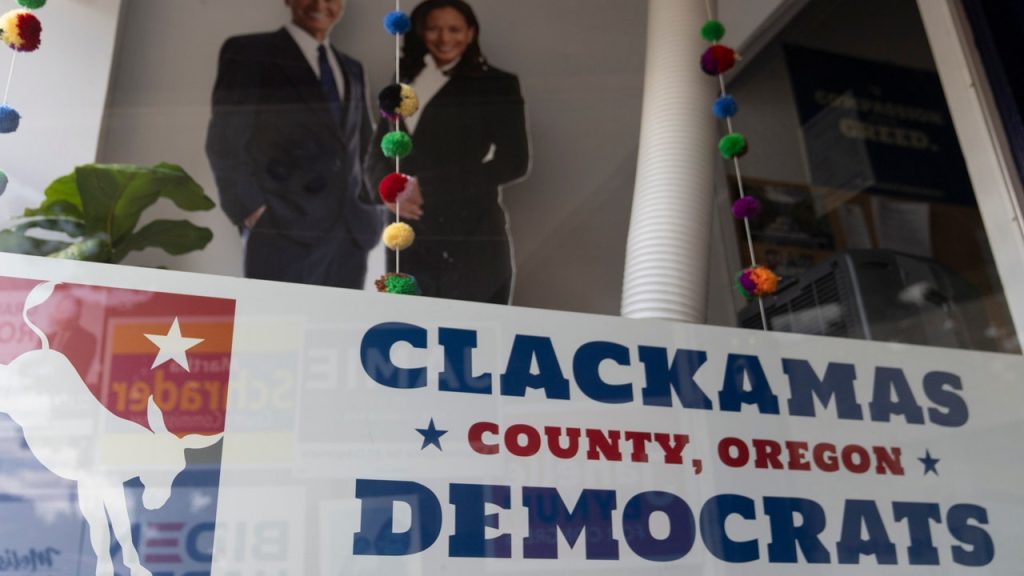Two Democratic primaries for U.S. House seats in Oregon will provide insight into the party’s preference for progressive or establishment factions in the upcoming presidential election. In the state’s 3rd Congressional District, two leading candidates, Maxine Dexter and Susheela Jayapal, are vying for an open seat left by U.S. Rep. Earl Blumenauer. While Dexter is a doctor and two-term state representative, Jayapal, who is endorsed by U.S. Sen. Bernie Sanders, is a former county commissioner and the sister of U.S. Rep. Pramila Jayapal. The race has seen significant fundraising and outside influence, but national Democrats are expected to maintain control of the solidly blue district amid accusations of Republican interference.
In the more competitive 5th Congressional District, Democrats are hoping to flip the seat after it was lost to the GOP in 2022 for the first time in decades. Congressional Democrats are supporting Janelle Bynum, who they believe has a better chance of winning in November compared to Jamie McLeod-Skinner, the progressive candidate who narrowly lost in the 2022 midterm primary and general election. Key Democrats have endorsed Bynum, and she has received support from the Democratic Congressional Campaign Committee’s “Red to Blue” program, aimed at flipping Republican-held districts. However, late super PAC spending supporting McLeod-Skinner has raised concerns about Republican manipulation of the primary.
The redrawn boundaries of the 5th District encompass a diverse range of regions, including urban and rural areas, wealthy suburbs, and central Oregon communities. Both McLeod-Skinner and Bynum, who have engineering backgrounds, have similar policy positions supporting abortion rights, healthcare affordability, and climate action. Bynum has outraised McLeod-Skinner in campaign funding, but much of the money in the race has come from outside spending by super PACs, heightening concerns of undue influence in the election. Candidates are vying to appeal to the district’s wide range of interests and voters, with both emphasizing their ability to bridge the rural-urban divide.
The involvement of outside groups, such as the 314 Action Fund and Voters for Responsive Government, has led to accusations of “dark money” influencing the races. Jayapal and McLeod-Skinner have criticized the influx of outside spending, with Jayapal linking the 314 Action Fund’s support in the 3rd District to “MAGA Republican mega-donors.” Dexter and Bynum have also condemned negative ads targeted at their opponents and emphasized maintaining a positive campaign. With the leading candidates sharing similar policy platforms, voters may need to choose based on the candidates’ styles and approach to governance – whether through pragmatism or idealism, highlighting the divide within the Democratic electorate on prioritizing progressive stances or practical accomplishments.


